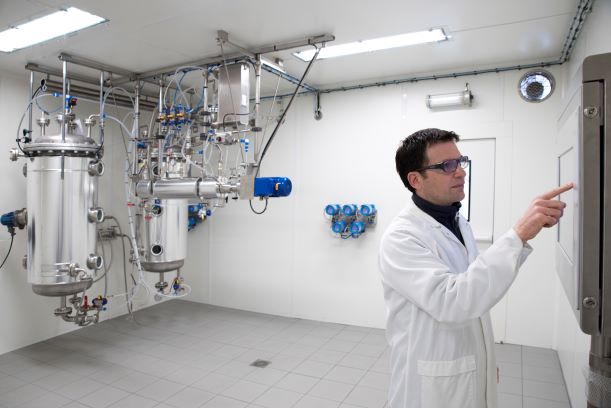Contract Services
Digitization for continuous process optimization: a case study 4th January 2019
By Pierre Giuliano, Managing Director at La Mesta, YRIEL Group
Pierre Giuliano, Managing Director at La Mesta, describes a case study of developing a continuous flow process on an industr

Pierre Giuliano, Managing Director at La Mesta, describes a case study of developing a continuous flow process on an industrial scale.
The advantages of flow versus batch production of many speciality chemicals are now broadly accepted. For most applications, continuous flow processes save time, energy and costs. Continuous flow improves product quality by making it easier to spot and correct errors, reduces overhead costs through increased stability / reduced lead times, and is more adaptable to customer needs.
Introducing flow synthesis in the fine chemicals field is a more recent trend, but it brings the same advantages to those companies able to adapt the technology and apply it to the main feature of fine chemicals production – that is, production within a highly-regulated and defined quality assurance environment.
As a CDMO company involved in different markets (GMP and non-GMP), La Mesta – part of YRIEL Group – invested in continuous flow process technology more than 15 years ago, in order to gain the advantages associated with this approach to producing compounds. The idea was to develop internally a new continuous flow multipurpose mini-reactor, able to intensify chemical processes involving gas, liquid and solids. This was achieved in 2004. Preliminary results were encouraging, and the company continued to invest in the technology in the following years, improving the reactor in order to achieve industrial scale efficiency and robustness.
After a screening period for different types of reactions, the first prototype continuous flow reactor was integrated in the regular batch plant using two twin reactors for mass reaction reception and workup. This important step allowed the company to improve its knowledge about the continuous flow mini-reactor and the potential strengths of this type of technology.
It rapidly became apparent that developing a proper continuous flow industrial solution dedicated to fine chemistry was not enough to benefit from all the advantages of this technology. To do so also required a different approach to managing raw materials feedstock / product workup, different spaces and volumes, and a new process control management system. Consequently, La Mesta realised that the next step was to build a plant dedicated to multipurpose industrial continuous flow, completely separated from the conventional batch plant, with its owns digital process control system.
The new continuous flow workshop was commissioned in March 2017. This workshop is structured around a mini tubular reactor – having a reaction chamber of only 1L – which is suspended in the middle of clean room of 20m2. A preheating system heats the solvents and/or reactants before they enter the continuous flow reaction chamber. Reactants can be introduced into different parts of the reaction chamber (in this way a multi steps reaction can run in just one pass). The downstream process is performed with two pieces of equipment for separation of organic and water phases, one gas flasher and a 1m2 thin film evaporator.
Such a complex operations structure requires an integrated process control system in order to monitor the stability, security and productivity of the production. This system manages all the pumps responsible for transferring up to five separate raw materials that may be introduced simultaneously, the transfer of intermediates, solvents and effluents, and end product discharge coupled with flow metres, temperature and pressure indicators. The reaction chamber also has an automated cleaning cycle that is based on a function of production time, reactor pressure, quantity produced or agitation power consumption.
For instance, with this process control, the company is in position to reach a flow rate of 500L/hour for a reaction generating a slurry salt of 1kg/min, or to manage, in a very safe way, another one generating a mass of gas corresponding to 40% of the desired product.
La Mesta is in the process of installing in-line analytical controls throughout the continuous flow process. Except for very specific synthesis, this is not essential for the industrial operations because the technology enables management of the reactive stoichiometry and reaction conditions more precisely than in any batch reactor. This brings an exceptional reliability and robustness for the production of complex fine chemical compounds, with very stable product quality.
For La Mesta, digitization is a key factor of the continuous flow production. It allows the company to guarantee regular quality production and productivity. The benefits of continuous technologies are driving a good return on investment – in terms of time, costs, quality and plant safety – that support continued development.
The future of the chemistry needs to be safe, miniaturized, eco-friendly and digitalized. In other words, the future of the chemistry is the digitized continuous flow.
Author:
Pierre Giuliano, Managing Director at La Mesta, 1336, route de l’Esteron, 06830 Gilette, France
T: +33 492 08 53 00
E: info@la-mesta.com



